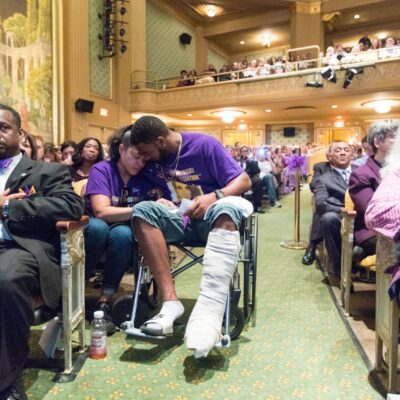
During the past seven months, the state of Virginia nabbed high honors from Forbes magazine and the Institute for Legal Reform (ILR) for its business climate and legal fairness, respectively. This made Governor Tim Kaine proud, and he praised both rankings in a speech to the Senate and House Finance Committees on August 28.
But what’s good news for Virginia could be bad news for the average guy: The combination of the state’s legal and business climates may spell trouble for lawsuits filed against businesses here.
University of Virginia law professor Kent Sinclair offered a critique of the ILR’s categories and of the term “legal fairness.”
“Translated, the ‘Institute’ is a lobbying arm for big business,” Sinclair says. “Thus, despite the neutral, almost academic-sounding name, this group has only one mission, and that is to reduce claims and litigation.” He says the ILR surveys the “in-house counsel or other senior litigators at public corporations”—parties that defend big business.
Virginia does not permit State class action suits, nor has it changed its $350,000 cap on punitive damage cases in 20 years. Sinclair says that these facts may account for the State’s high marks in the “Treatment of Class Actions and Mass Consolidation Claims” and “Punitive Damages” evaluations. Virginia placed in the Top 5 in both.
Virginia also excelled in the “Overall Treatment of Tort and Contract Litigation,” which may limit returns to individuals in civil suits. “The [overall] tort system ends up paying one-third to lawyers,” says UVA law professor Jeffrey O’Connell, who would like to see the system operate as our worker’s compensation program does: “A higher percentage to medical expenses, less to lawyer fees.”
In the “Judge’s Impartiality” and “Judge’s Competence” categories, Sinclair claimed that he “never heard from them the view that our trial judges are biased against plaintiffs.” This means that the cases lucky enough to reach the courts could be heard by impartial judges.
But pro-business law might limit access to the legal system. Alex Gulotta, executive director of Charlottesville’s Legal Aid Justice Center, cites the General District Court of Virginia, the origin of small claims cases, as such a problem. These courts are “not courts of record,” explains Gulotta. That means, for example, that if a tenant loses a dispute with a landlord and chooses to appeal, he or she must post an appeal bond instead—a bond that may amount to several months’ rent, and therefore presents quite an impediment to going after The Man.
“The problem, I think, is the mechanisms we’ve put in place,” Gulotta says. “Even though it’s 2006, we continue to not be friendly to people trying to create cases on their own.”





